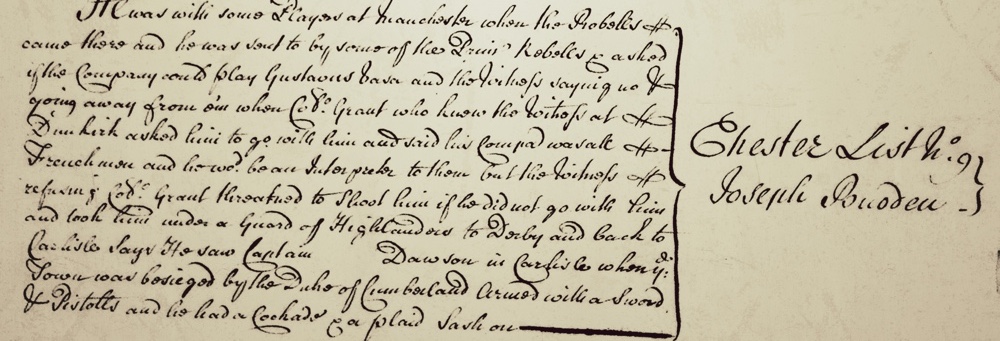According to the testimony of Joseph Bruoden, a musician in Manchester at the time of the Jacobite army’s arrival there in late November of 1745, he was bullied into joining the rebels at gunpoint. This was not an infrequent claim from those captured by the government during and after the final rising. When faced with the charge of high treason in the London courts and its consequential punishment by death, it only makes sense that terrified prisoners would swear they were compelled by force to pick up arms against the Hanoverian king. It was, in essence, a Hail Mary in favour of their very survival.
So many had claimed impressment, in fact, that most scholars strongly marginalize the significance of its presence, holding to the traditional maxim that such claims were not only the norm and therefore are patently untrue, but that they exacerbate the perceived severity of the Jacobite army’s recruitment tactics. After extensive collation and analysis of both impressment claims and cases during the rising, my own findings contradict this marginalization, instead suggesting that the last Jacobite effort was effectually decentralized and hardly popular, and the need for armed supporters was so great that coercion – by fire and sword, through financial or emotional manipulation, or simply at gunpoint – was markedly rampant during the affair.1
He was with some Players at Manchester when the Rebells
came there and he was sent to by some of the Princes (Privt?) Rebells & asked
if the Company could play Gustavus Vasa and the Witness saying no &
going away from ‘em when Colo Grant who knew the Witness at
Dunkirk asked him to go with him and said his Compa was all
Frenchmen and he wod be an Interpreter to them but the Witness
refusing Collo Grant threatened to Shoot him if he did not go with him
and took him under a Guard of Highlanders to Derby and back to Carlisle…2






